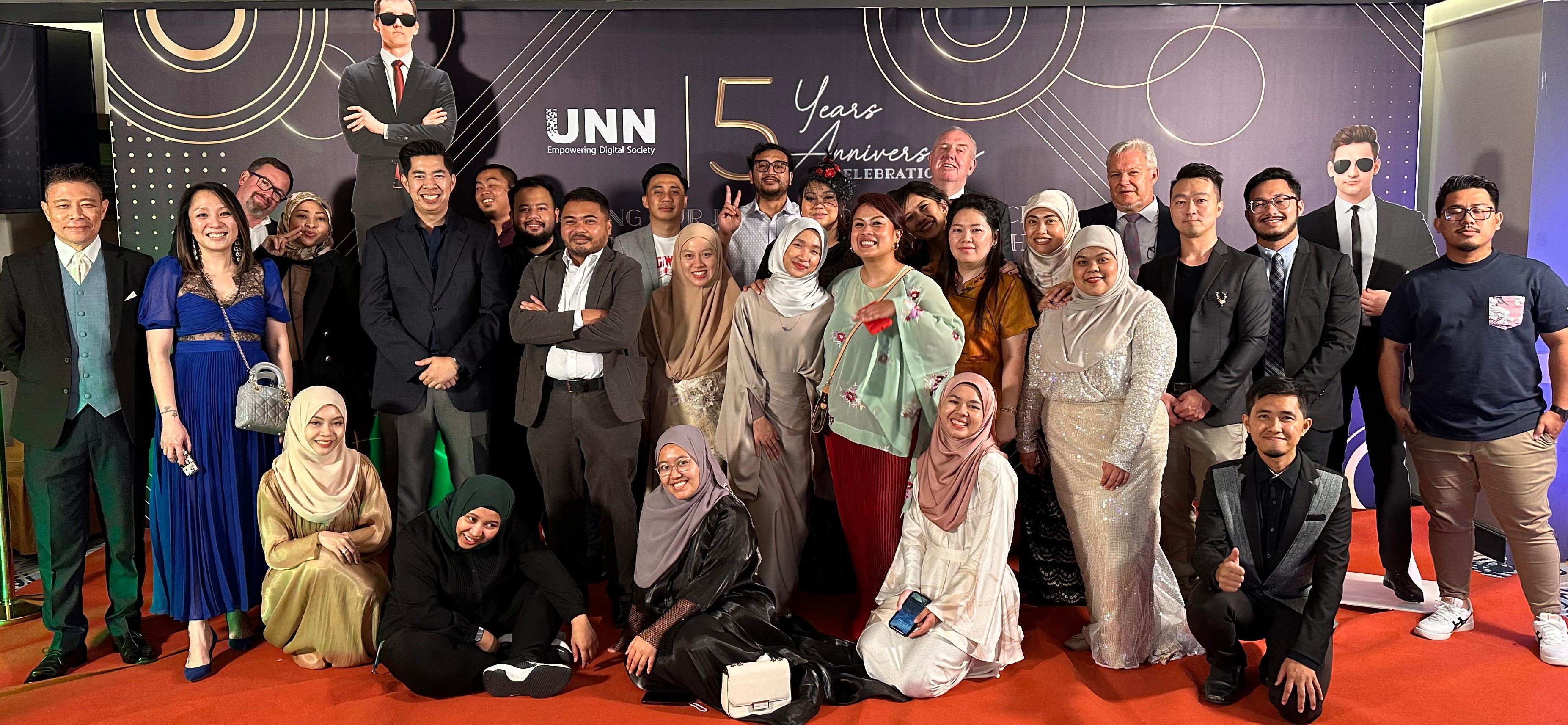
04 December 2023 - The world of telecommunication has evolved significantly when we compare where we were when the telephone was invented in 1876 to where we are now, with 5G mobile technology launched in June 2023 and fixed broadband baseline speed uplifted to 100Mbps in September 2023 available for all customers in Brunei Darussalam.
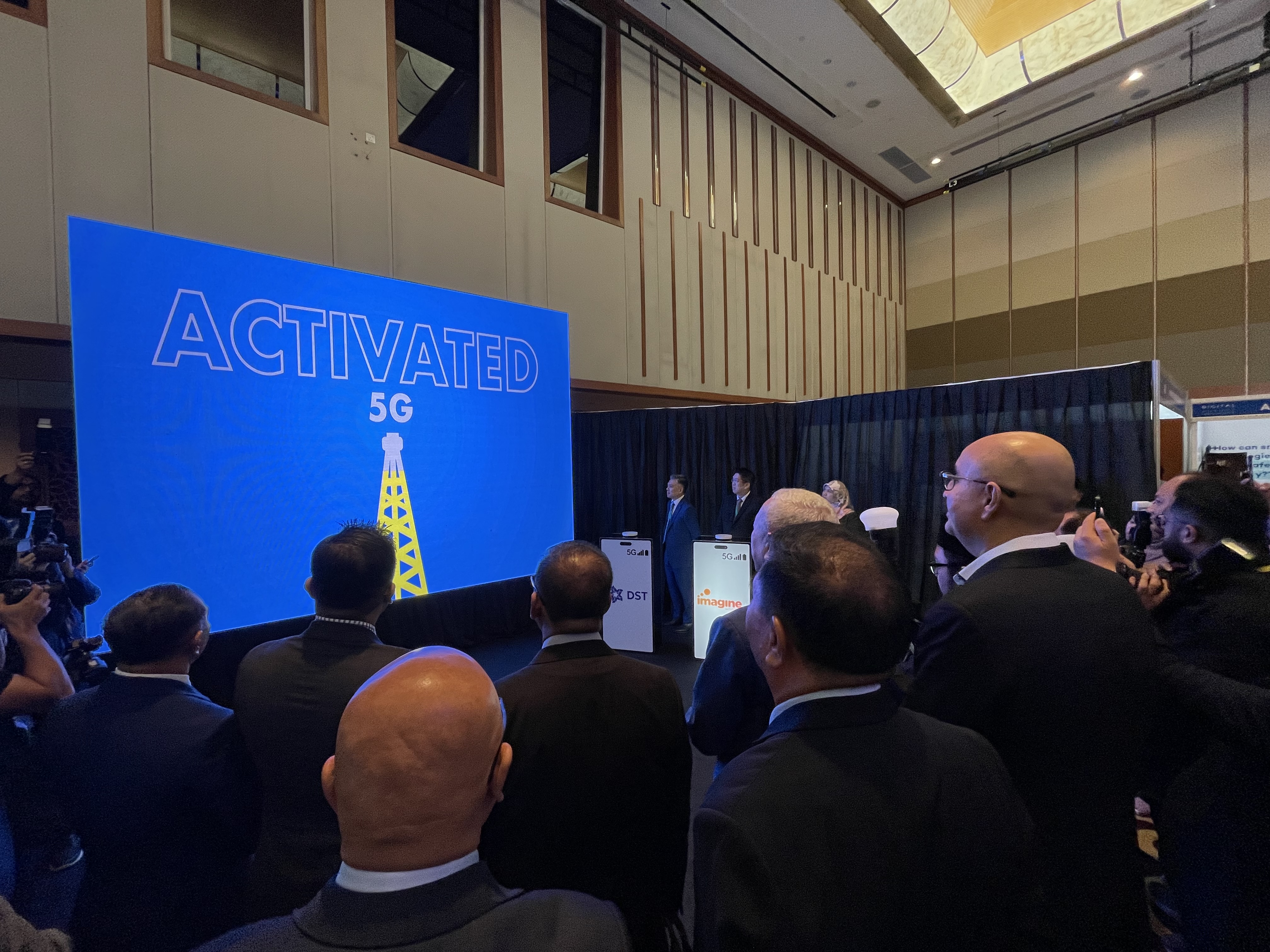
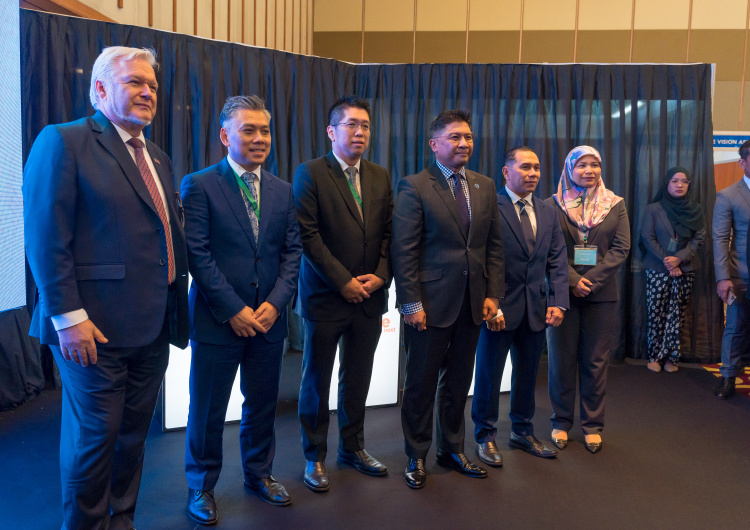
In the late 1990s, the introduction of Netkad was widely used by consumers to connect to the internet via dial-up technology. Whilst the sound of the desktop computer connecting to the internet remains nostalgic (if you know, you know) and unknown for the younger generations, the speed to connect to the internet and the limited time of connectivity are not missed.
The copper cables to which the broadband network was run at that time have physical limitations in terms of speed. After all, copper cables are susceptible to damage (corrosion) and other aging factors which are negatively influencing the quality of signal and resulting speeds.
And because copper is a metal element, the copper cables become an easy source for thieves to ‘harvest’ the copper wires from the telecommunication network infrastructure and make a quick buck when sold as scrap metal. Cable cuts and thefts are the most common causes of network incidents, not just in Brunei but globally, and they impact consumers’ internet experience, causing unnecessary disruptions towards communities and businesses and significant additional costs for operators to repair and maintain.
As the demand for internet connectivity rises every year with introduction of broadband services and speed requirements per subscriber, there was a need for telecommunication companies to identify strategically how to address these demands in mid to long term. Fibre optic cables have been introduced in telecommunication networks from the 1980s and over time became the one and only option to provide broadband access for the customers, leading to worldwide massive investments to provide nationwide coverage to customer or home (fibre-to-home, or FTTH). Optical fibre has nearly unlimited capability to transport data and has solved quite a few problems that exist in copper networks.
While fibre cable rollout began in Brunei Darussalam more than 20 years ago, the usage of fibre for the broadband access started in 2010. The expansion and modernisation of Brunei’s telecommunication network, including FTTH network became the top priority for Unified National Networks Sdn Bhd (UNN) when it was established on 04 December 2018.
In celebration of its 5 years anniversary today, it is a good time to see how UNN has progressed thus far. Home broadband speed increased by 400% from average 20Mbps (in 2019) to minimum 100Mbps (in 2023), an increase of fibre footprint by 55% from 3,752km (in 2019) to 5,829km (in 2023), an increase of fibre broadband access coverage by 81% from 86,590 connections (in 2019) to 156,720 connections (in 2023), and a decrease in actively used copper lines by 77% from 30,000 lines (in 2019) to 7,685 lines (in 2023), most of which are used for telephony only.

UNN is a state-owned, government-linked company setup by Darussalam Assets Sdn Bhd to necessitate the growing demand for connectivity, supporting the transformation of the country into a Smart Nation by alleviating the country’s ICT ecosystem to best practice global standards. To-date, 93.1% of Brunei’s populated areas are fiberized with ongoing fiberization to all remaining areas and the migration of existing copper subscribers to fibre expected to be completed by next year.
Technological advancement and affordability of owning smart devices also play a part in the evolution of telecommunication. Current trends indicated that 2/3 of the world’s total population should be online by this year (2023), with expectation that the internet will grow at an incredible rate of 27,000 new users every hour, show how incredibly fast the world is adopting to digital connectivity. The need to promote ICT adoption is clear and urgent as the world is becoming increasingly digital.
As a result of its mobile network expansion and rural development projects that started in 2020, the country’s mobile coverage had increased by 12% from 2019, and average mobile internet speed went up by 300% from 20Mbps (in 2019) to 80Mbps (in 2023). To-date, 92% of the country is equipped to receive mobile services from base stations that are providing 5G services. And over the next 2 years, UNN will continue to invest in expanding its mobile network across the four districts, including remote areas like Sukang and Melilas.
Concurrently, since the beginning of its journey, UNN is investing in its employees and their skills development as its people play a vital part of the telecommunication ecosystem and are expected to evolve alongside the telecommunication and technology advancements. After all, UNN employees are the ones putting in the hard work of rolling out infrastructure, managing faults and maintaining the network and its equipment.
To-date, UNN has employed almost 700 people with locals making up 98% of the workforce. Over 440 local employees are currently assigned in the operational, technical, and digital areas of the company to build, upkeep, repair, upgrade and safeguard the telecommunication infrastructure and equipment across the four districts.

Between 2018 and 2023, over BND2 million and 4000 days were invested in both internal and external training for UNN employees carried out by UNN HR Learning & Development and UNN Academy, teams that are dedicated to implement continued improvement, upskilling, knowledge sharing and change management.
5 years ago, UNN was born out of the need for Brunei’s telecommunication industry to transform from an expensive, restrictive, and not always serving the needs of the customer environment to an industry where a wholesale network provider is investing and building modern, cost-efficient digital platform to support Brunei Darussalam’s Vision 2035 of advancing the country into a smart nation. The transformation journey of Brunei telecommunications industry in 2019 is just the beginning towards a more connected and digitally integrated future.
Today, we are on the verge of another revolution in how telecommunication companies are being transformed. Whether it is artificial intelligence, augmented and virtual reality, or internet of things (IOT), these technologies require connectivity and an understanding of how they can be integrated into our homes, businesses, and society.
UNN shall continue to invest in key initiatives and programs to build and modernise ICT infrastructure to ensure consumers achieve reliable and meaningful digital connectivity - a level of connectivity that allows consumers to have a safe, satisfying, enriching and productive online experience at an affordable cost.
At the same time, UNN is also supporting members of the industry in understanding its infrastructure and expertise, listening to ideas and feedback through various platforms (such as Innovation Symposium and DFCE 2023) and propelling them into innovation and adoption of new technologies that could better serve the public.

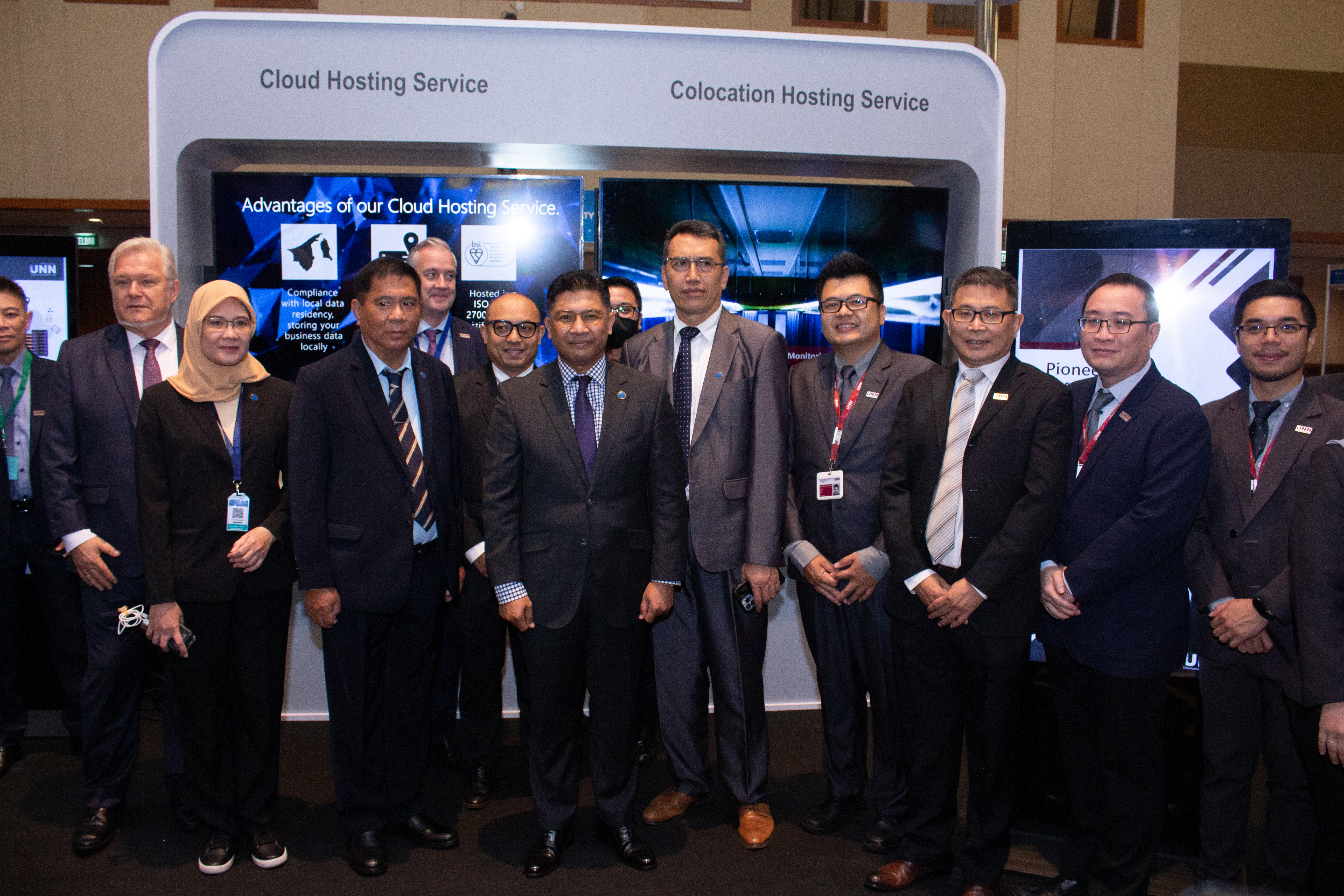
UNN Affiliated Partners Program (UNN AP) was recently introduced in June 2023 to integrate UNN products and services (and expertise) with partners’ portfolio to further enhance and add value to their existing service offerings, which in turn enable mass market technology adoption.
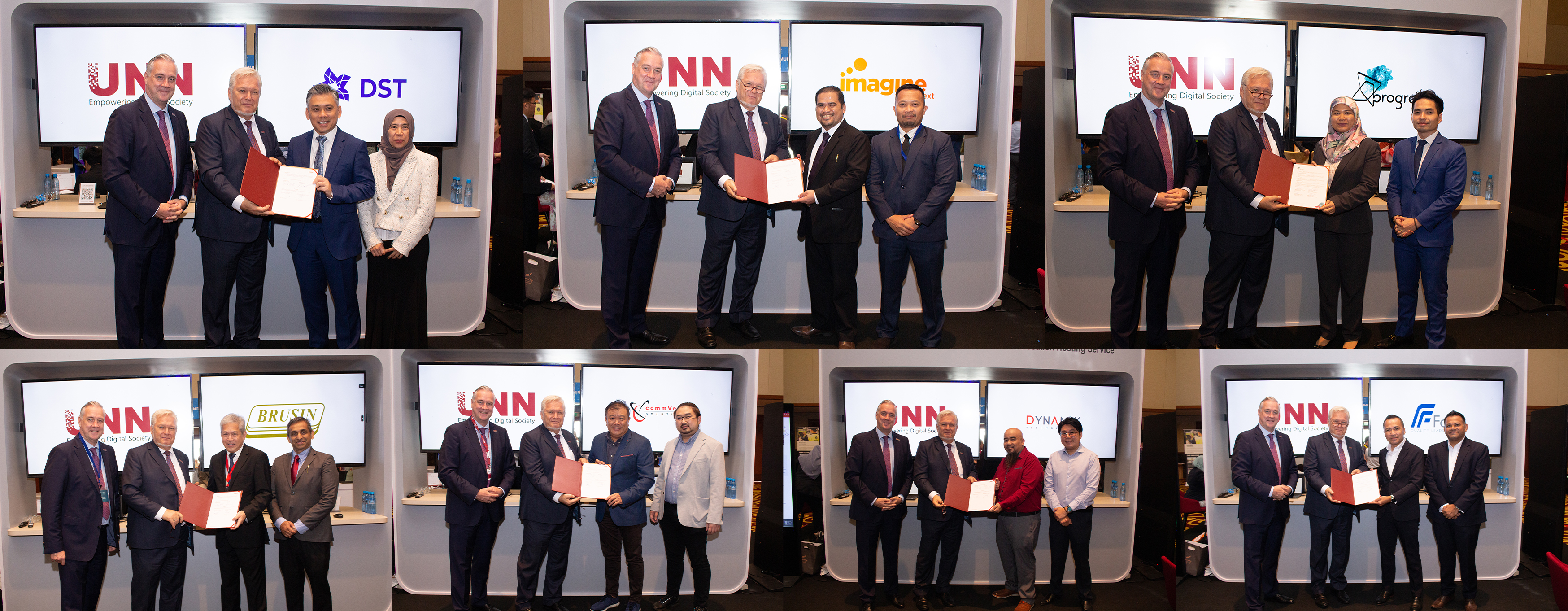
Future initiatives such as Gigabit POC, rural coverage expansion expected to complete in early 2024, and additional measures for the broadband offerings expected in September 2024 will ensure UNN is keeping up with the momentum to enable and drive the next telecommunication revolution and constantly evolving to a potential we cannot even begin to imagine.
back
